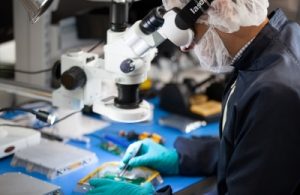Rolls-Royce to axe up to 2,500 jobs in major cost-cutting action

Rolls-Royce is set to swing the axe on between 2,000 and 2,500 jobs as its boss embarks on another round of cost-cutting.
Chief executive Tufan Erginbilgic has announced the job cuts to the firm’s non-engineering workforce. The move will affect Rolls-Royce’s operations across the world, with hundreds of roles expected to go in the UK.
The engineering firm employs hundred of people at its plant in Filton in South Gloucestershire.
Rolls’ engineering technology & safety division will come together as a single team, responsible for product safety, engineering standards, process, methods and tools. It will be led by Simon Burr, currently director – product development and technology, civil Aerospace, who is joining the company’s executive team with immediate effect.
Functions such as finance, general counsel and people will also be brought together across Rolls-Royce.
Grazia Vittadini, chief technology officer, will be leaving the business in April 2024.
Rolls-Royce currently employs 42,000 people worldwide
In February, Rolls-Royce posted improved full-year turnover figures for 2022 – but its new CEO said the firm is “capable of so much more”.
Underlying profit came in at £652m last year, up by £238m on 2021, while turnover rose to almost £12.7bn. The company was boosted by strong new order wins in Civil Aerospace and Defence and a record order book in its Power Systems division.
However, Rolls said that it wouldn’t be paying a dividend to shareholders for 2022.
Shortly after he took over from Warren East as CEO, Erginbilgic said that Rolls was “destroying value” and that shareholders were losing patience with the 117-year-old firm.
In a worldwide address to staff, which was shared with the Financial Times, Erginbilgic said that Rolls is “underperforming every key competitor out there”.
The broadside was the starting gun on a series of cost-cutting measures.
Erginbilgic said that Rolls was a “burning platform”, adding that the company’s poor performance was “unsustainable”.








